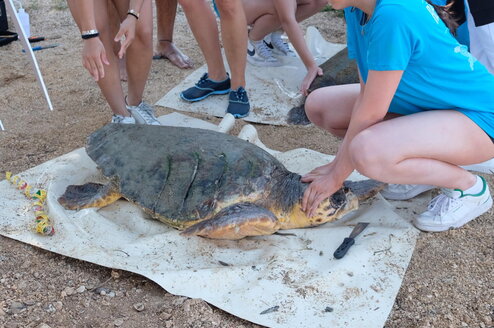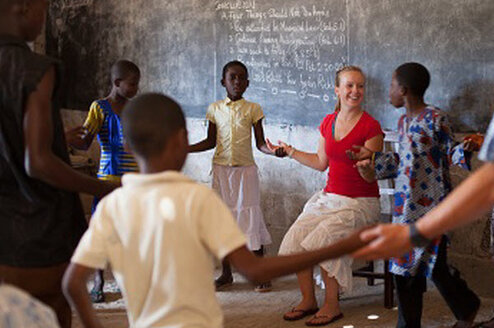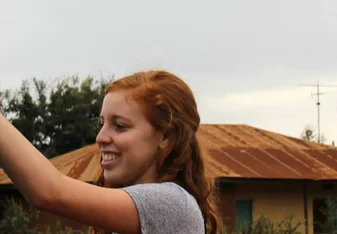High School Abroad in Swaziland
High School Abroad Programs in Swaziland
About
Relaxed, laid-back, and carefree are a few of the most common words used to describe this small but vibrant nation full of friendly people. Beyond the economic struggles the country faces, it is exceedingly beautiful and students will find themselves in awe of its landscape. High school students looking to spend time abroad can provide much needed assistance in a variety of fields.
Swaziland is great for students who are interested in wildlife, nature, volunteering, experiencing a unique culture.
Program Types
Students interested in traveling abroad to Swaziland can choose from:
- A community volunteer program
- A nature or wildlife volunteer program
- A travel tour
Community Volunteer Programs
There is limited government funding for welfare programs in Swaziland, which creates a great need for volunteers. Rural communities are hit the hardest and are the least likely to receive aid. Programs range from constructing new community buildings to caring for and teaching the local children. Whatever your talents and skills, you'll find a project where your assistance will make a positive difference.
Nature and Wildlife Preservation
Swaziland contains over 20 protected regions, including national parks and nature reserves, spanning across the country. As a result, there are a few programs for students who enjoy helping animals and protecting the environment. Most programs can be found in more rural areas like the Ezulwini Valley, where volunteers will gain experience in the field with endangered animals and unique plants.
Travel Tour
High schoolers also have the opportunity to embark on a travel tour through Swaziland and, in some cases, other parts of Africa. This program is best for those who want a 2-4 week long planned excursion that will take them through both the famous and beautiful areas of the country. Depending on the program, students may have a chance to participate in volunteer work, but will primarily be spending time seeing what Swaziland has to offer.
Planning Your Trip
Visas
High school students from the United Kingdom, United States, and Canada can obtain a 30 day tourist visa upon arrival in Swaziland. Be sure you can present proof of sufficient funds and a return flight. Those wishing to stay longer will have to apply for a temporary residence visa.
Check with your country’s Swaziland embassy for the most up to date requirements about what type of visa you will need. Generally, if you’re working with a program, they will help you apply for the correct visa.
Additionally, if you are planning to enter and exit Swaziland through South Africa, you should have several blank pages in your passport. South Africa requires two unstamped visa pages, excluding amendment pages, each time an individual enters the country.
Housing
Homestays are frequently provided as a housing options for high school students spending time in Swaziland. Additionally, volunteers are sometimes given the option to house with other volunteers and staff in a dormitory-type setting.
Costs
High school students flying from North America to Swaziland can pay between $1,000 and $1,300 USD, while those traveling from Europe can spend around $950.
Once you get there, Swaziland is inexpensive compared to North American and Western European countries. The local currency is lilangeni, but the South African rand is accepted everywhere as well since their currency are fixed at equal value. Living in larger cities will cost more than in the smaller towns and villages. Students estimating their budget for food, transportation and additional expenses can plan to spend about $10 USD a day.
Program costs in Swaziland differ depending on the location, length of stay, type of housing and what additional amenities are included. A two week volunteer program can cost $2,000 USD, but the longer you stay, the cheaper the weekly program costs. For example, a three month volunteer program only costs $4,000.
Packing Tips
Swaziland has varied weather depending on the region and time of year you’re visiting. Summer, lasting from October to March, ranges between 70 and 100 degrees Fahrenheit (21 and 38 degrees Celsius). The highest levels of rain are found in the western part of the country during the summertime.
Winter lasts from June through September and has a cooler average daytime temperature of 77 degrees Fahrenheit (25 degrees Celsius) and 59 degrees Fahrenheit (15 degrees Celsius) at night.
Always bring:
- UPF (sun resistant) clothing
- Sunscreen and insect repellent
- A hat
- Solid walking shoes for outdoor adventures
- A power and voltage converter
In the summer:
- A rain jacket
- Rain boots
Cultural Etiquette
Female students should cover their knees, especially in smaller communities, or they may be offered a sarong. Handshakes can last quite a long time, so prepare yourself for some arm pumping! Shake with your right hand and put your left hand under your right forearm. This shows you aren’t hiding anything behind your back with your left hand.
Health & Safety
Health
Before visiting Swaziland, it is recommended high school students receive vaccinations for tuberculosis, Hepatitis A and B, typhoid, and rabies, as well as obtain preventative medication for malaria. If you are coming from or even transiting through a country with yellow fever you will need to present proof of yellow fever vaccination upon arrival. HIV and AIDS are a large problem in the country, so educate yourself on the disease beforehand.
Wash your hands before all meals and only drink bottled water. Make sure to avoid ice in beverages, as it may be made from unclean water.
Emergency medical response is nearly nonexistent in Swaziland and health facilities are limited country-wide. Mbabane and Matsapha are the only places where medical institutions are well-staffed and properly equipped for minor procedures. Most prescriptions can be obtained in these cities, but it is advised that students bring enough of their own medications along with a doctor’s note.
Safety Considerations
Students visiting Swaziland should maintain a heightened state of awareness to have a fun and safe time in the country. It is important to be aware of your surroundings, as pickpockets, snatch-and-grab thieves, and robbery are common throughout Swaziland. Instances are more frequently reported at night, but are not uncommon during the day in areas full of other people.
It may be best to leave all valuables home, as items like jewelry, phones, and cameras can attract thieves. Students should be discrete with their cash and remember to only exchange money at certified vendors. Usually travelers are only removed of their valuables during a robbery, but situations can turn violent when victims resist. Remember that personal safety is always more important than any object.
Demonstrations should be avoided, as police often use force to subdue them. Only use taxis from reputable companies, and do not enter taxis if anyone besides the driver is inside. Take note of the taxi’s license number, and make sure a friend knows the number for emergency situations.
















